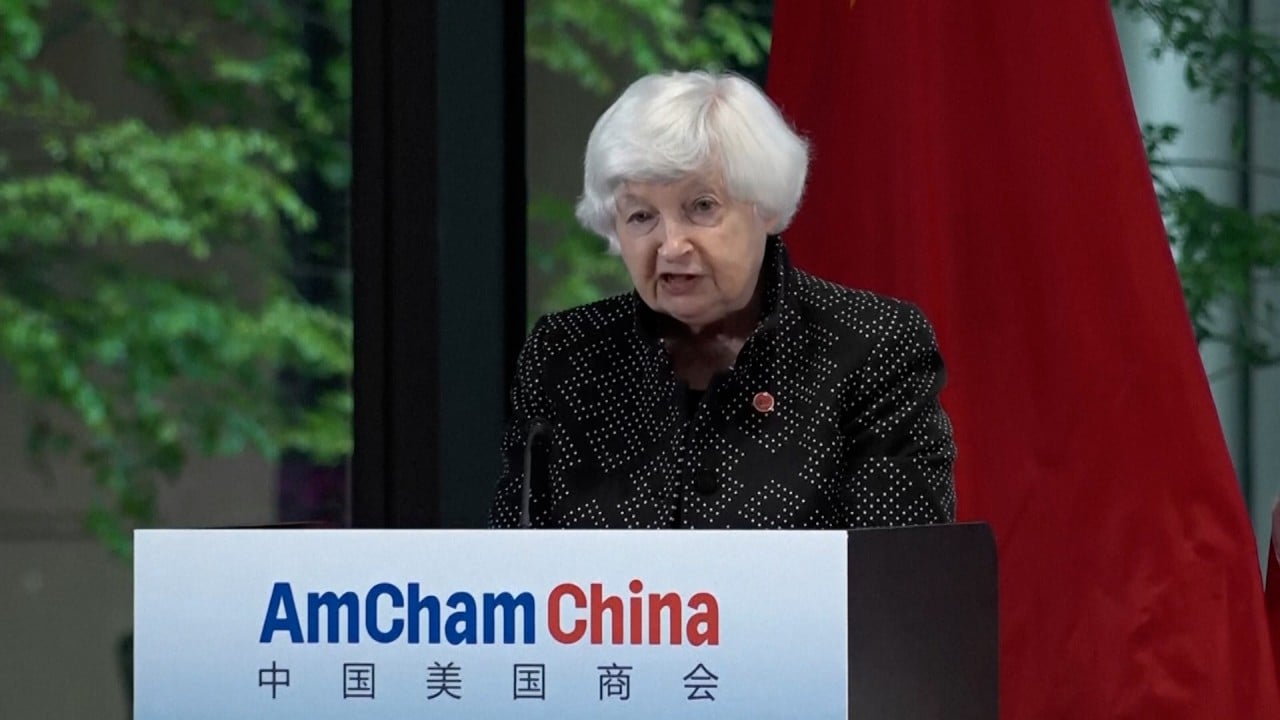In her address to the Stanford Institute for Economic Policy Research titled “Geopolitics and its impact on global trade and the dollar” on May 7, Gopinath observed that global economic ties are changing in ways not seen “since the end of the Cold War”.
This is obviously true. It is beginning to look as though the changes will lead not to a hot war but a new ice age where US- and China-aligned blocs coexist in an environment of slow growth and tension.
A longer term slowdown would have causes beyond mounting geopolitical and geoeconomic tensions. Adverse demographics and declining productivity are among them but a fragmentation of the global economy and of trade and investment loom large.
For China and China-leaning countries, IMF research shows the dollar’s share of trade finance payments has dropped since early 2022 while the yuan’s share has more than doubled to 8 per cent.
Likewise, the yuan’s share in the cross-border transactions of Chinese nonbank entities with foreign counterparts was close to zero 15 years ago but has risen to around half since late last year while the dollar’s share has fallen from around 80 per cent in 2010 to 50 per cent.
If these trends continue, the risk is that the world could “end up moving dramatically away from a global rules-based trading system”, said Gopinath.
Notably, China’s share of US imports fell by 8 percentage points from 2017-2023 after trade tensions flared up while the US share of China’s exports dropped by about 4 percentage points. And direct trade between Russia and the West has collapsed.
This economic fragmentation is not significantly different from the initial years of the Cold War. But fragmentation is much more costly this time around because unlike back then, when goods trade made up just 16 per cent of the global economy, it now takes up a much larger 45 per cent.
Back then, too, countries within blocs were generally removing trade restrictions “while right now, we seem to be much more in the environment of, just, many countries becoming protectionist and looking inwards”, Gopinath observed.
If we are indeed at the start of a new cold war, we would do well to recall that the last one endured for nearly half a century. “It’s really crucial to make sure that we preserve the big gains that have come from having this kind of economic integration,” said Gopinath. “We need to have enough guard rails to make sure that you’re not throwing the baby out with the bathwater.” National leaders need to listen.
Anthony Rowley is a veteran journalist specialising in Asian economic and financial affairs


